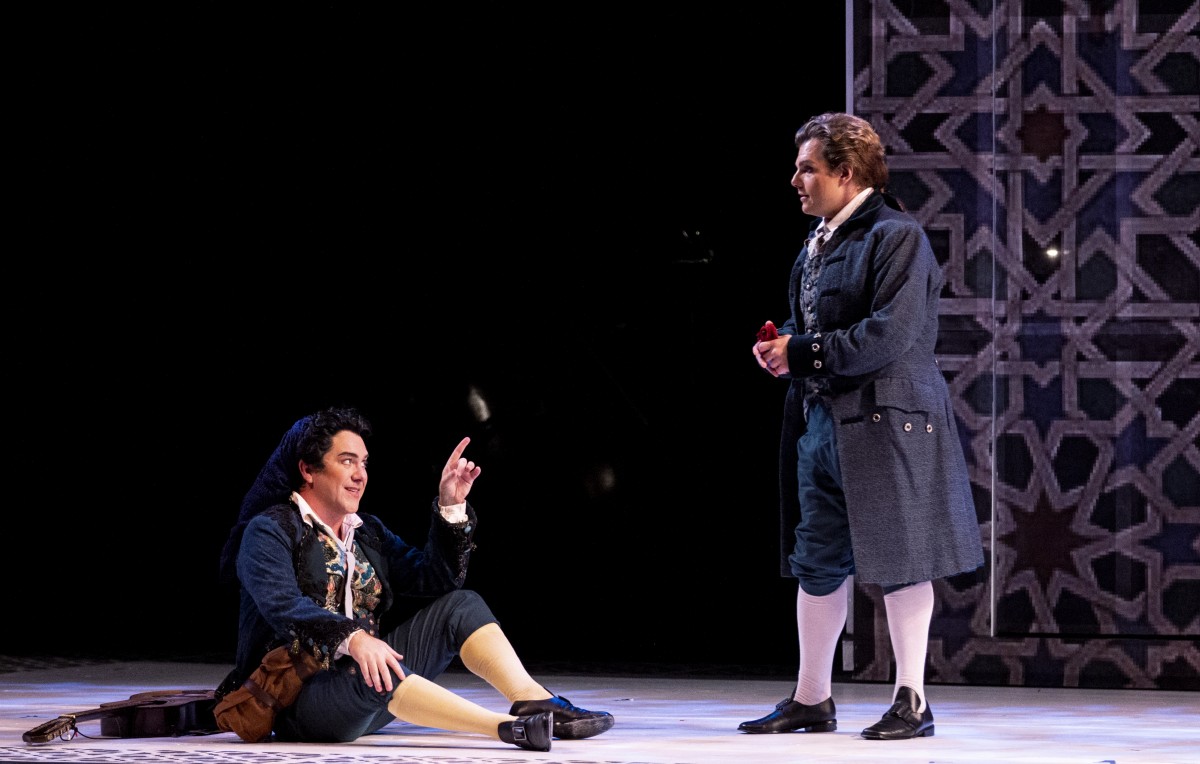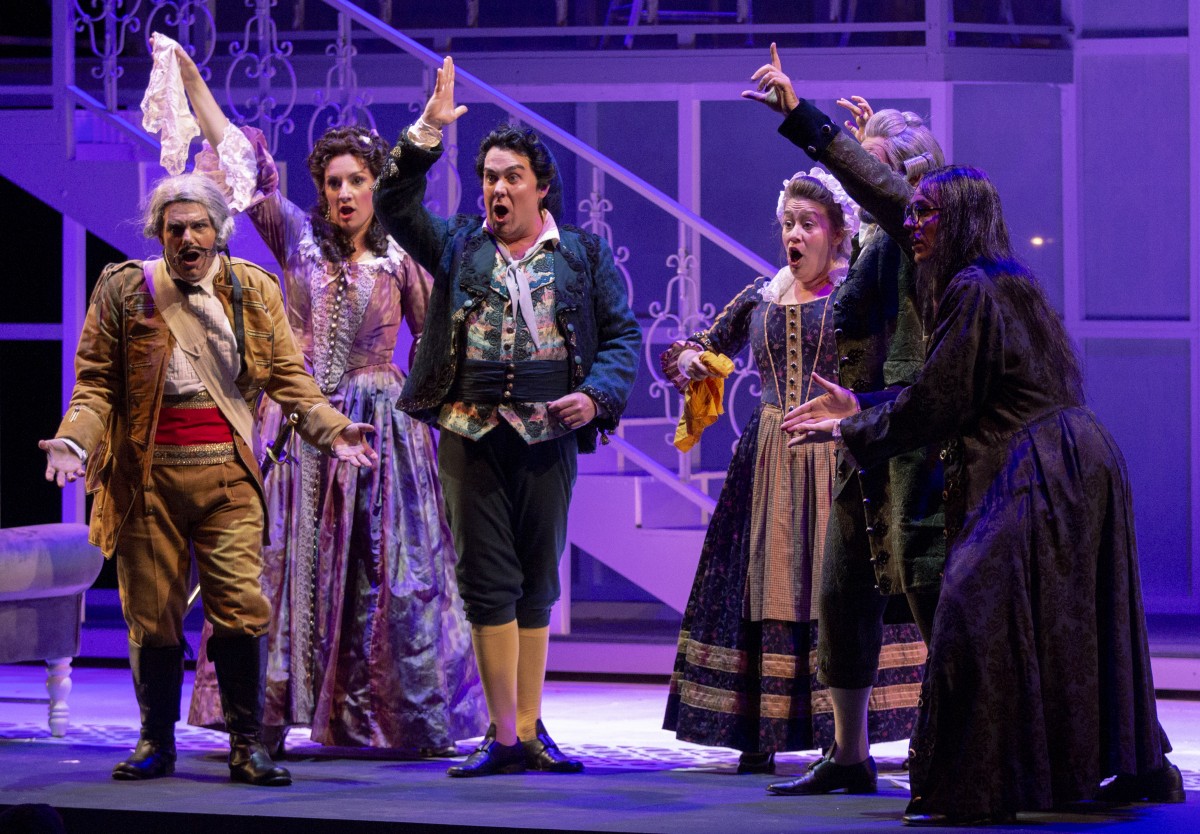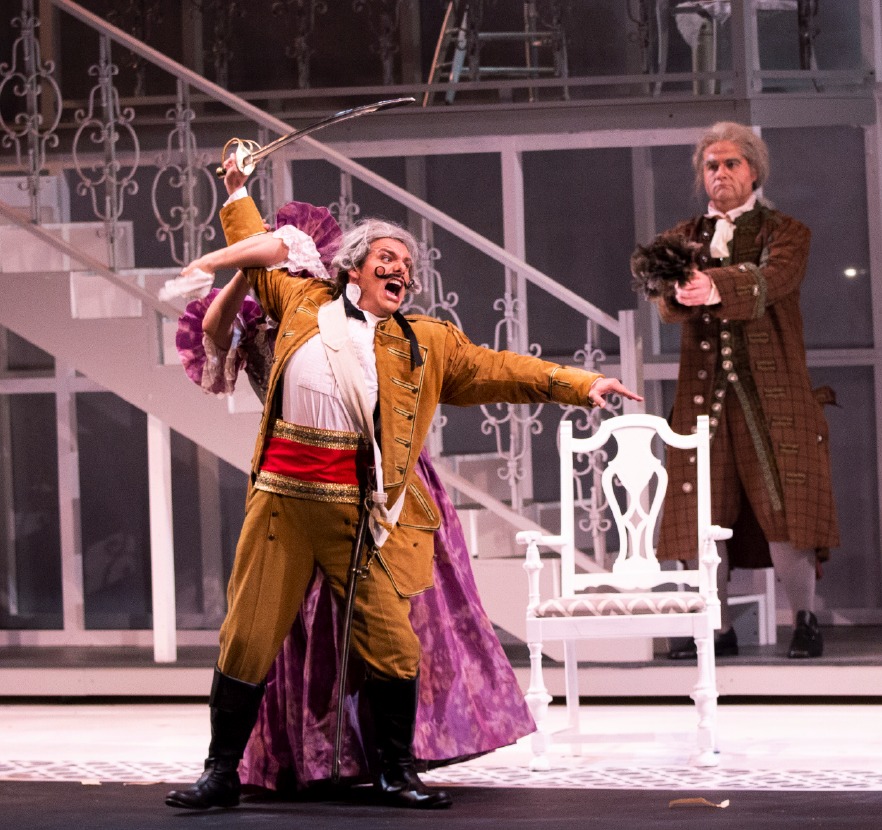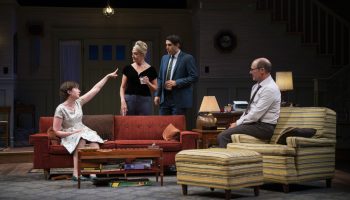Despite being in and out of trouble with the government, Beaumarchais was a man of many talents. From watchmaking to diplomacy, the French polymath Pierre-Augustin Caron de Beaumarchais produced work that helped change the landscape of the 18th century.
Between his struggles and accomplishments, he wrote six plays and many short comedic scenes. In the late 1700s, he wrote The Figaro Trilogy, which includes Le Barbier de Séville (The Barber of Seville), Le Mariage de Figaro (The Marriage of Figaro) and La Mère Coupable (The Guilty Mother).
Ned Canty, the general director at Opera Memphis, said the plays have retained their popularity because they are still relevant.
“It’s as relevant today as it ever was,” said Canty, who has directed several Chautauqua Opera productions in the past. “The timelessness of those particular characters, and conflation of political power or wealth with the power to do whatever you want with people, is still a thread of human history right up to today.”
Soon after their momentous successes in theaters, each play became an opera from famous composers like Gioachino Rossini and Wolfgang Amadeus Mozart.
At 7:30 p.m. Thursday, July 25 in Norton Hall, Chautauqua Opera Company will perform the first of installment of its Trilogy Weekend with Gioachino Rossini’s Il Barbiere di Siviglia. This performance marks the beginning of Chautauqua Opera’s first-ever festival — in celebration of its 90th year — where audiences can see three operas in three days.
In 1732, Beaumarchais was born in Paris to watchmaker André-Charles Caron as the seventh of 10 children. His childhood was comfortable, and he learned watchmaking from his father. Equipped with his wit and clever hands, he invented a new escapement mechanism in 1753, which made watches more accurate. Canty said his mentor tried to steal his idea, leading Beaumarchais onto the path to fame.
“His mentor in watchmaking stole the idea to make it his own,” Canty said. “So it was his first lawsuit that Beaumarchais was involved in, one of the first things that brought him to fame.”
The invention, coupled with letters he wrote to the French Academy of Sciences to prove the invention was his, caught the attention of the French Court. With that, his popularity soared and impressed King Louis XV.
He became a fixture in the home of Le Normant d’Étiolles, the husband of the king’s mistress, Madame de Pompadour. There, he staged his first parades, a form of comedic French street entertainment.
Beaumarchais married widow Madeleine-Catherine Franquet, who helped him purchase a position at court. He adopted the name “Beaumarchais,” which was derived from Franquet’s estate. A few months after their wedding, Franquet died. Soon after, Beaumarcais met rich army supplier Joseph Pâris-Duverney and collaborated with him on many business ventures.
In 1764, he traveled to Madrid, where he attempted to settle business deals on behalf of Pâris-Duverney. All the while, he basked in the Spanish lifestyle, which later influenced his Figaro plays.
When he returned to Paris, he and Pâris-Duverney entered into a questionable timber enterprise. Once Pâris-Duverney died, his estate passed to his nephew-in-law, who tried to have the timber contracts annulled.
Faced with financial ruin, Beaumarchais published a series of witty memoirs that helped him win his case in the court of public opinion and, eventually, his case against Pâris-Duverney’s relatives.
During this time, between 1757 and 1763, Beaumarchais had put pen to paper in more parades for the private amateur theaters in Paris. He established himself as a writer with his first dramatic play Eugénie in 1767.
People accused Beaumarchais of marrying for financial gain; he had many lovers throughout his life. The next year, he married his second wife, Geneviève-Madeleine Lévêque. She died in 1770, just after she had their son Augustin, who died two years later.
In 1770, he produced another drama, Les Deux amis, which was not well received. Canty said Beaumarchais’ life experiences and witty nature made him more skillful at writing comedies.
“He just didn’t have the same gift for (drama),” Canty said. “(His dramas) never reached the same velocity that his comedies reached.”
With the failure of Les Deux amis in mind, Beaumarchais returned to the parades, which led him to his next venture — Le Barbier de Séville.
The play — set in Seville, Spain — follows the love-struck nobleman Count Almaviva who hopes to make Rosina fall in love with him. Rosina is the ward of the grumpy Dr. Bartholo, who hopes to marry her when she becomes of age. Figaro, the Count’s servant, helps Count Almaviva meet Rosina. The play and its characters were heavily influenced by Beaumarchais’ personal life.
After Le Barbier de Séville was rejected by the Théâtre Italien, a theater in France where Italian-language operas are performed, Beaumarchais revised it in five acts. In 1773 and 1774, the play was accepted by the Comédie Française, a state theater in France.
The performance was delayed because between 1773 and 1774, Beaumarchais had an altercation with a prominent duke. He was briefly jailed, and when the court ruled in Beaumarchais’ favor, his popularity went through the roof.
The court limited his civil rights, so to earn his freedom, Beaumarchais completed secret missions for the French government. After traveling across Europe as a spy where he protected the French crown by buying off certain journalists, Beaumarchais was granted permission to perform Le Barbier de Séville. Throughout this time, he began his relationship with Marie-Thérèse de Willer-Mawlaz.
Le Barbier was a complete failure. Unfazed, Beaumarchais took three days to revise the play to four acts. Then, it received boundless applause.
The play has since been musically adapted several times. The first to reach mainstream success was Il Barbiere di Siviglia by composer Giovanni Paisiello, which premiered in 1782.
In 1816, 17 years after Beaumarchais died, a 24-year-old Gioachino Rossini premiered his version of Il Barbiere di Siviglia in Rome. Despite a tumultuous opening night filled with angry Paisiello fans and stage mishaps, it quickly became a huge success.
Rossini’s Il Barbiere di Siviglia, which he composed in under three weeks, is still regarded as one of the greatest comedy-within-music masterpieces.
Chautauqua Opera performed Rossini’s famous opera earlier this season, on July 5 and July 8. Kathleen Smith Belcher, director of Chautauqua Opera’s Il Barbiere di Siviglia said to approach this opera, the text is key when looking at the intricacies of each character.
“I start with the text first, and I look at who these people are,” Smith Belcher said. “Things like: What do they want? And how are they going to get it?”
Beaumarchais’ first story in his trilogy pushed the 18th century envelope and his characters showed the author’s “combative personality,” according to Oxford World Classics’ Beaumarchais: Figaro Trilogy, a new translation by David Coward.
Baritone Daniel Belcher, who plays Figaro in Chautauqua Opera’s Il Barbiere di Siviglia, said at its core, the opera is about people and relationships with a bit of political commentary from Beaumarchais amid the comedy.
“It’s about the young love and innocence,” Belcher said. “And the Count goes to Figaro, who is of much lower class, for help.”
In the play Le Barbier, Beaumarchais exemplified the importance of hard work even after an initial failure. Even as an opera, his story and beloved characters captured audiences’ hearts, Canty said.
“There are plenty of plays that were produced during that same year that no one has ever heard of or done again because it didn’t capture that basic human relationship,” Canty said.








